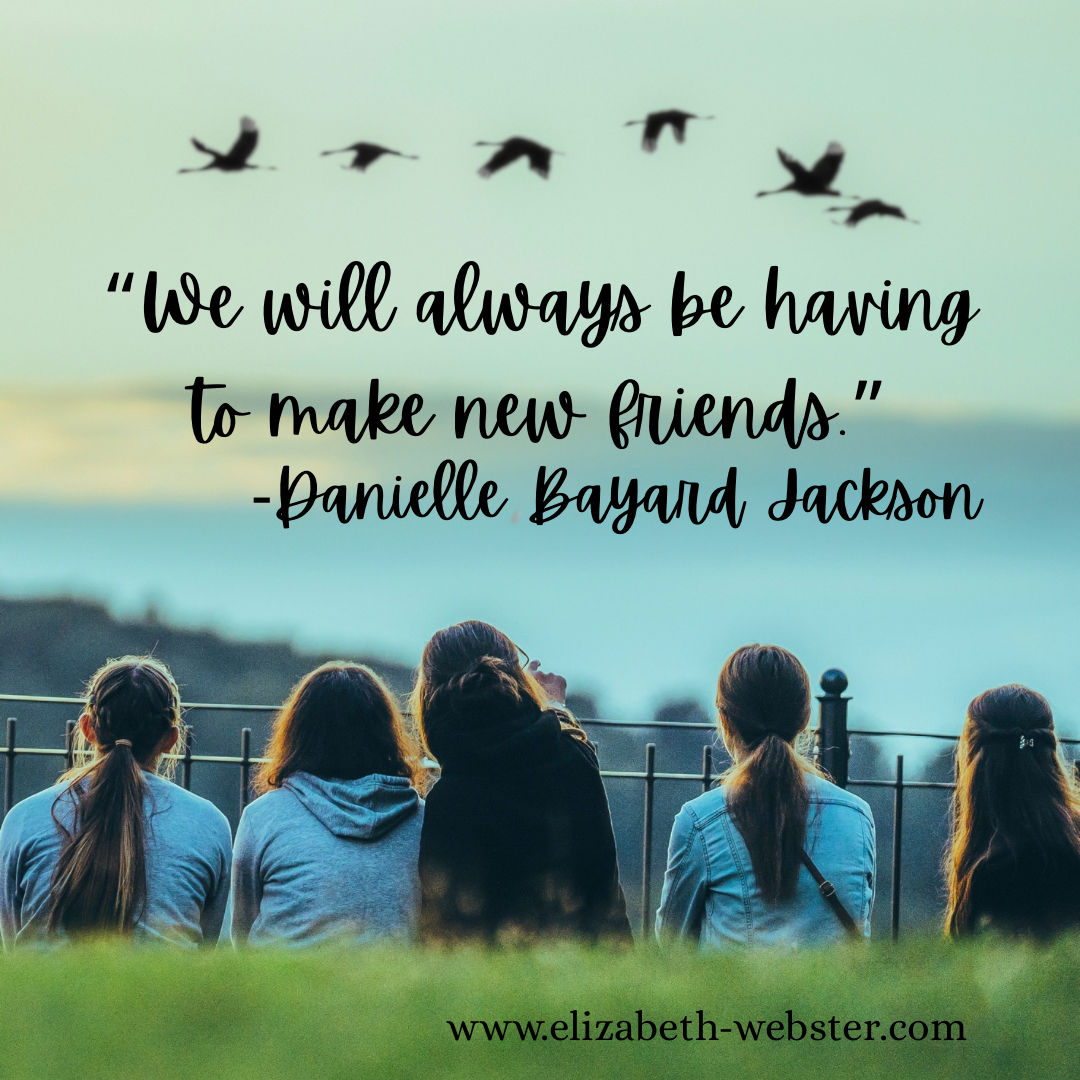A Friendship for All Seasons
Image by Omar Ramadan via Unsplash.
When I was deep in the trenches of editing Summer Triangle, I attempted to explain the friendship dynamic of two characters to my editor. I told her they’d been best friends since childhood, but they lived on opposite sides of the country. They saw each other infrequently. They only spoke occasionally.
“But how can they be best friends if they’re not actually in each other’s lives?”
The question startled me. (It also, predictably, necessitated further editing.) The conversation marked another example of the circular art-imitating-life-imitating-art moments that pepper my writing life. After reflecting on a few friendships in my actual life at the time, I realized I was holding on to nostalgia instead of something real. Certain friendships still offered that magical bond where I could reunite with someone like no time had passed. Others had mattered deeply to me years prior, but I came to find that the season had changed. The realization that I’d actually left people behind - without any real closure - was a bittersweet reckoning.
I felt guilty, too. Maybe I didn’t each out enough. Maybe I didn’t work hard enough to meet people where they were, particularly those friends whose life choices didn’t look like mine. Maybe I’d discarded old friends too quickly, replacing them with relationships that came more easily.
In Summer Triangle, Natalie and Eliana only reconnect because unexpected crises force them to resurrect their bond. They are privileged, too, to be able to spend the summer together away from the pressures of more ordinary days and to focus on their friendship again. In retracing their steps, they find their way back to each other.
But most of us can’t go backward. Even if we could, relationships require reciprocity - and resuscitating a friendship seems like an impossible undertaking alone.
For a long time, I viewed certain friendships as simply belonging to a different time. I treasured the memories I made with those friends, yet I decided to pour my energy into relationships that light up this season of life for me. It all sounds very Zen, doesn’t it? Perhaps it is - until I acknowledge the nagging guilt that lived inside me; the ruminative taunt of “what if?”
Fortunately, I stumbled upon a podcast recently that nudged me to be less hard on myself. When I listened to Mel Robbins’s eponymous podcast in which she interviewed Danielle Bayard Jackson, I found myself unexpectedly moved by their conversation. Jackson studies adult friendship. While all people look for supportive friendships, Jackson’s research indicates that female friendships are unique for their heightened intimacy. Instantly, I knew exactly what she meant.
Our one-on-one conversations. Our shared secrets. Our reciprocal vulnerability.
When I reached out via my Instagram Stories to learn your thoughts on seasonal friendships, I was heartened by the depth of your reflection - and wisdom. A few of you mentioned childhood friendships that have miraculously stood the test of time, but most of you talked about the difficult process of gaining and losing friends in adulthood. As I read your messages, I was struck by how commonplace this bittersweet experience is - and how most of you refused to blame anyone else for your losses. The through line in the responses I received was a quiet, radical acceptance that not every friendship can be the forever kind; yet you look back fondly and gratefully on the friendships you’ve left behind.
According to her book, Give it a Rest: The Case for Tough-love Friendships, Jackson’s research shows that females expect three affinities in relationships. One of them is symmetry. We want to live inside the same season with our friends. If we’re not in the same season, we have to exert effort to not outgrow each other. Our relationships aren’t seasonal so much as they’re innately mirrored. No matter how old we are, girls and women expect to grow up together - and we put tremendous (impossible) pressure on our friends to change exactly as we’re changing, right alongside us. In short, we don’t always give our female friends the grace we expect them to give us.
Dr. Jackson also highlighted that, unlike romantic relationships, adults don’t walk into friendships anticipating an ending. Because of these unreasonable expectations, we’re often harder on ourselves when we can’t make a friendship work long-term.
Perhaps the fixation on longevity is the real problem. Our culture values relationships that last, but maybe we need a softer metric. Maybe we shouldn’t measure friendships by the time spent together but by their mutual depth, respect, and kindness. After all, if a friendship inspired us to become the best versions of ourselves, we’re taking much more from that relationship than mere memories.
Resolving to be the person that a dear friend would admire, no matter whether you’re still in each other’s lives? Maybe that’s the one part of any friendship that truly lasts.
I’d love to keep this conversation going and circle back to it in the future. If you have more thoughts, feel free to comment below or to reach out to me directly. As isolated as we all might occasionally feel in our friendships, I was reminded this week that we’re all in this together.
